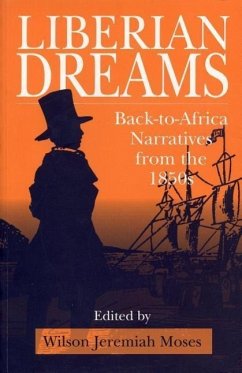In the early nineteenth century, the American Colonization Society was formed for the purpose of encouraging emigration of free blacks to Africa. While intent on ridding the United States of what they saw as a dangerous black population, the association also attracted some liberals who viewed its goals as an incentive toward emancipation. Attitudes among African Americans toward colonization were varied, viewed by some as an opportunity to start new lives in a free country and by others as a deceptive scheme of the white man. But when the passage of the Fugitive Slave Act in 1850 put the freedom of every person of African descent in jeopardy, many began to consider emigration their only option. This collection of historic documents illuminates the debate on emigration through the narratives of four black men who in 1853 traveled to the new black nation of Liberia. Their accounts offer surprisingly different views and insights on the young country and provide both endorsements and condemnations of the colonization effort.








